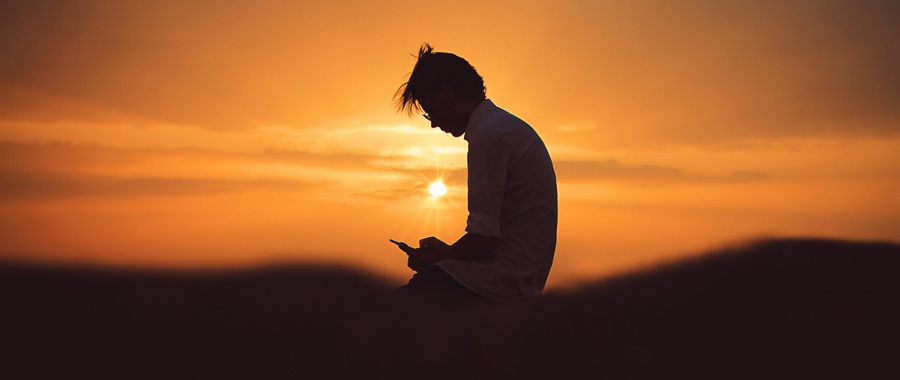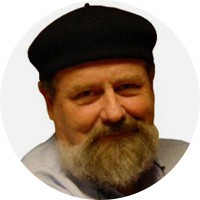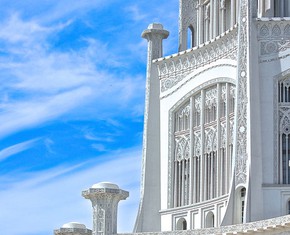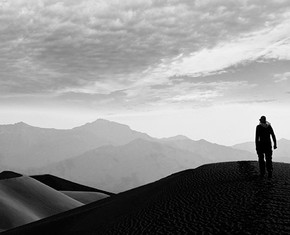The views expressed in our content reflect individual perspectives and do not represent the authoritative views of the Baha'i Faith.
Baha’u’llah, my mother and I learned when we began hearing about the Baha’i Faith, brought a new set of teachings which held the answers to the modern world’s problems.
Eventually, when I could get hold of some Baha’i books and read them for myself, I found Baha’u’llah’s explanations extraordinarily profound and insightful concerning the spiritual and social needs of humanity.
My favorite book of Baha’u’llah’s is entitled The Hidden Words, a short compilation of brief moral aphorisms full of ethical wisdom, a distillation of the spiritual guidance of all the revelations of the past:
O Son of Spirit! The best beloved of all things in My sight is Justice; turn not away therefrom if thou desirest Me, and neglect it not that I may confide in thee. By its aid thou shalt see with thine own eyes and not through the eyes of others, and shalt know of thine own knowledge and not through the knowledge of thy neighbor. Ponder this in thy heart; how it behooveth thee to be. Verily justice is My gift to thee and the sign of My loving-kindness. Set it then before thine eyes. – Baha’u’llah, The Hidden Words, pp. 3-4.
O Ye Dwellers in the Highest Paradise! Proclaim unto the children of assurance that within the realms of holiness, nigh unto the celestial paradise, a new garden hath appeared, round which circle the denizens of the realm on high and the immortal dwellers of the exalted paradise. Strive, then, that ye may attain that station, that ye may unravel the mysteries of love from its wind-flowers and learn the secret of divine and consummate wisdom from its eternal fruits. Solaced are the eyes of them that enter and abide therein! – Ibid., p. 27.
I read and re-read the many passages in The Hidden Words. Now things seemed to make sense. When I started using in school what I was learning at home, my teachers must have thought that I had had a brain transplant. I remember the stunned expression on one English teacher’s face when she asked me to use the word “justice” in a sentence.
“Beyond a sort of vague ideal,” I replied, “it is difficult to know what justice looks like in an age so burdened with tyranny. Justice can only be possible among people who are free from the prejudices of race, nationality and gender. In a way, injustice blinds us to the reality of justice. In its absence, we are forced to guess what it looks like. I feel people are mistaken to think of it as some kind of product. Justice itself is not an end, it is the means to greater things, it is the means to seeing and understanding things for ourselves.”
The teacher was not used to hearing such answers from the mouth of such a bored, lackluster and apparently clueless student – me.
In the silence which ensued in the wake of my answer, I forgot to tell them that the reason I had these thoughts was because I had been reading books by Baha’u’llah. Fortunately, the class bell rang about then.
School was never the same after that, and teachers were no longer boring. I was suddenly interested in their ideas. In fact, the entire educational process now had meaning, and I began to understand that education was not exclusively found in schools. Ultimately, teachers do not teach students, they get students to teach themselves.
I was twelve years old at the time. I suddenly realized one day, in the middle of my science class, that my education was my own responsibility and there were no limits in the world except the ones I imposed upon myself through neglect of my studies. This also applied to my spiritual education. This realization led to many others about myself and the lifetime that lay ahead; being twelve became an age of wonder and discovery.
At that time, I did not know what I wanted to be, what profession or career to follow. One day I wanted to be an artist, the next a scientist, and the day after that something else. This diversity of interest did not really concern me, it seemed normal for twelve-year-olds to vacillate between future professions from one minute to the next.
However, back then I did worry about being inconsistent with my religious interests, for I had begun to take religion seriously. I realized that religions are not like professions; people should not change them just because they want a change. I knew that I believed in the teachings of Baha’u’llah, and I knew that I wanted to be a Bahai more than anything else.
But I was young and I wondered if I would change my mind later. I decided to wait and look at other religions again before I became a Baha’i, and if, after more investigation and comparison, I still believed in Baha’u’llah, I would know that I could become a sincere Baha’i.
Looking back, I can now see that this was a mature decision. But at the time I think it was influenced by something my mother pointed out to me. She informed me that the Baha’i Faith was a religion of believers. Children were not automatically born into the religion or expected to follow blindly the religious choices of their parents. There was no ceremonial baptism. Offspring decided for themselves if and when they wanted to become Baha’is. This meant that even though my mother had become a Baha’i, I could still choose my own religion.
I considered this and decided to wait until I was older before I registered as a Bahai, so that I would be sure that I was adopting a religion because I believed in it myself, independently of my mother. I had read in the writings of Baha’u’llah that the age of maturity began at fifteen. I chose to wait until then to make my decision.
This series of essays is adapted from Joseph Roy Sheppherd’s book The Elements of the Baha’i Faith, with permission from his widow Jan Sheppherd.
You May Also Like
Comments

















Allahuabha!!!!!